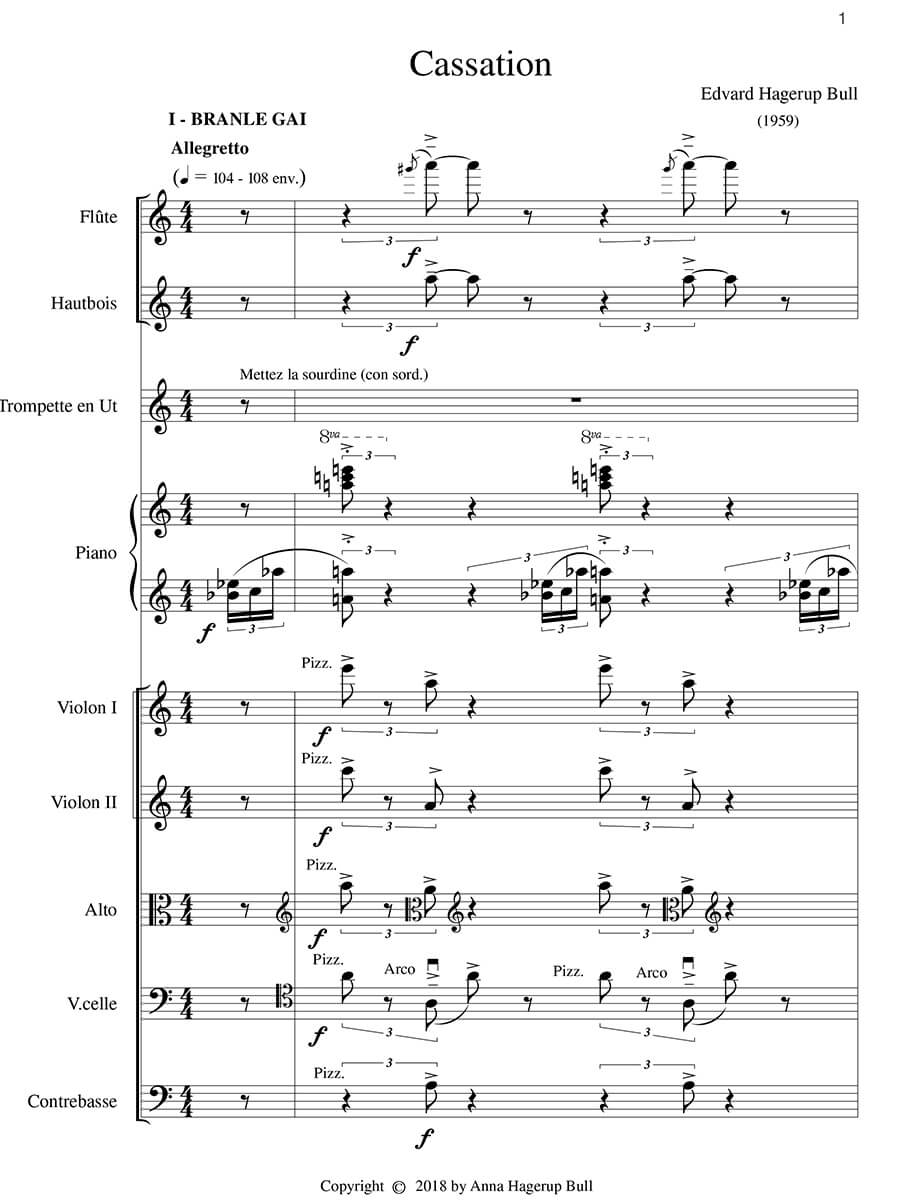«Cassation» pour orchestre de chambre op. 22 (first print)
Bull, Edvard Hagerup
30,00 €
Preface
Edvard Hagerup Bull – «Cassation» pour orchestre de chambre op. 22
(1959)
(b. Bergen, 10 June 1922 – d. Oslo, 15 March 2012)
I Branle gai
II Air
III Galliard
Edvard Hagerup Bull obtained an organist diploma in Oslo in 1947 after studies with Arild Sandvold (1895-1984). He also studied piano with Erling Westher (1903-86) and Reimar Riefling (1898-1981) and composition with Bjarne Brustad (1895-1978) and Ludvig Irgens Jensen (1894-1969). His father, Sverre Hagerup Bull (1892-1976), was a respected music critic as well as the editor and one of the main authors of the Norwegian music encyclopaedia “Musikkens Verden”. Edvard Hagerup Bull had an impeccable ancestry for a Norwegian composer: his paternal grandfather was a cousin of Edvard Grieg, while Ole Bull was the grandfather’s uncle. The same grandfather was several times finance and justice minister under the Christian Mikkelsen government, the first Norwegian government after Norway became independent from Sweden in 1905. Between 1948 and 1953 Edvard Hagerup Bull studied composition at the Paris Conservatoire with Darius Milhaud (1892-1974) and Jean Rivier (1896-1987) and musical analysis with Olivier Messiaen (1908-92). Later on he spent two years in Berlin (1959 – 61), where he studied composition with Boris Blacher (1903-75) and analysis with Josef Rufer (1893-1985). Back in Norway he was ready to establish himself as a working composer. This was not to be, however. He encountered a great deal of indifference, even downright hostility towards his music in his own country. The latter was epitomised by the overwhelming flood of negative reviews his Second Symphony received after its premiere in Oslo in 1963. After a long crisis, and with a young family to take care of, he decided to move to France, but not before his beloved master Milhaud had reassured him that he was indeed on the right track and that the Second Symphony was an outstanding work that did not deserve the bad reviews it had received. Indeed Milhaud considered Hagerup Bull to be one of his most brilliant pupils and described him as “a musician with a solid technique and a very winning, commanding and highly imaginative personality.” Milhaud’s original words were “Je […] certifie que le compositeur norvegien Edvard Hagerup Bull […] est un musicien d’une technique solide et d’une personnalité vraiment très attachante, vigoureuse et pleine de fantaisie” (17 oct. 1963) …
Read full preface > HERE
Score Data
| Special Edition | Amethyst Edition |
|---|---|
| Genre | Orchestra |
| Size | 225 x 320 mm |
| Performance Materials | available |
| Printing | First print |
| Pages | 106 |
